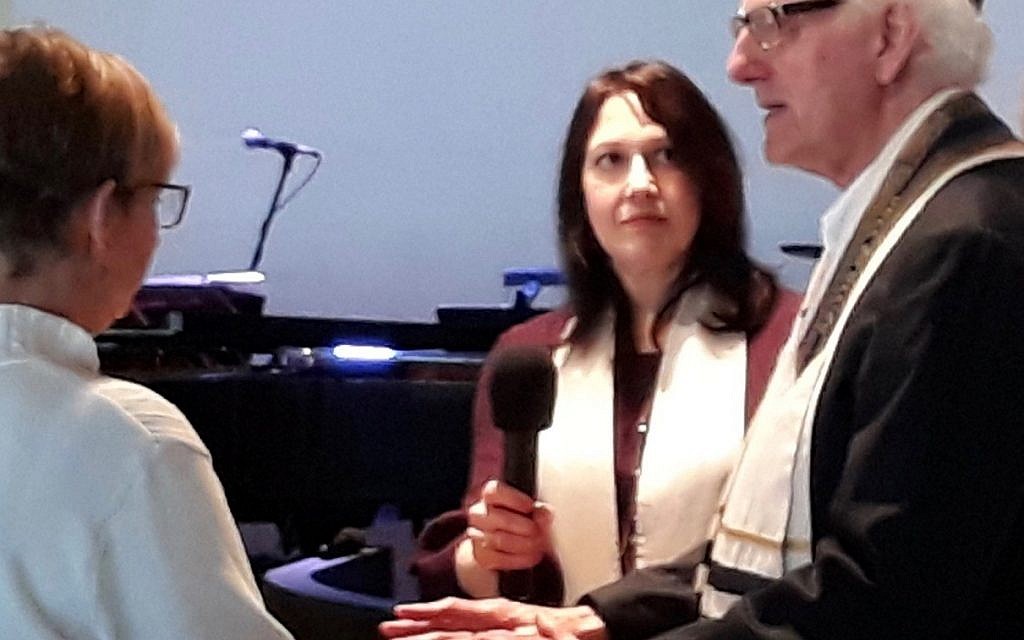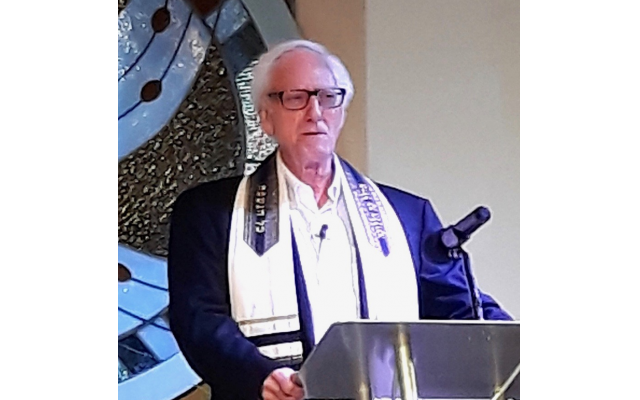The Light of Passover – An Interfaith Perspective
The Unity Atlanta Church readily makes available its large sanctuary for the Rosh Hashanah and Yom Kippur holidays for Shema Yisrael – The Open Synagogue, which Bahr helps to lead.
For the past 15 years the Unity Atlanta Church in Norcross has been my temporary home during the High Holidays. The church readily makes available its large and comfortable sanctuary for the Rosh Hashanah and Yom Kippur holidays for Shema Yisrael – The Open Synagogue, which I help to lead.
We leave our prayerbooks out on tables in the lobby between the two holidays and when their church events conflict with ours, they reschedule them. The relationship has deepened and endured over the years despite all the changes we have both experienced and the construction of a completely new church building.
So, after 15 years, it was with a deep sense of gratitude that I accepted the invitation this year to co-lead two Sunday morning church services at the end of March.
Increasingly in America we connect across the religious divide at this time of the year. Many cities have ecumenical seders and invitations to exchange greetings between religious faiths that otherwise go their separate ways.
But Unity’s invitation made it clear that I would not be there just to say “hello.” I was invited to share, as best I could, in the welcome of the uniquely American denomination that has honored during the 140 years of its history an openness to other faiths, including mine.
When I finally rose to speak to speak, I was reminded not of what sets us apart at this time of year when we celebrate our respective holidays, but what brings us together.

The two holidays neatly coincide with each other on this year’s calendar. They celebrate in their own unique way, new possibilities. As Jews, we celebrate freedom and the rebirth of our people after the slavery of Egypt. We are called to contemplate not only the joys of being free, but the responsibilities as well. Christians likewise celebrate new life and renewal.
We do all this surrounded by the first flowers of spring, the new blossoms of the trees, the robin red breasts and the bluebirds of happiness.
Passover and Easter are two holidays that take place when the earth is coming alive with new growth and renewed energy in an abundance of light. We all welcome the warming rays of the sun during this month as we emerge from the shadows of winter.
In the sacred writings of Judaism there is an appreciation of light, also, for the spiritual power that it offers.
There is the mystical interpretation of the power of the first light that is spoken of in the opening verses of the Book of Genesis.
Perhaps that is the same sort of dazzling light that Moses reflects back to the Israelites after his 40 days on Mount Sinai and after his conversations with G-d in the Tent of Meeting. So powerful is the light that he must cover his face in public.
So as a welcoming gesture, the church structured its entire service that Sunday around an appreciation of light, in all its forms. In the guided meditation that morning I spoke of how we can imagine ourselves as standing in light that not only comes from the electrical fixtures in the ceiling, but from the heavens as well.
And so, I suggested to the congregants at Unity that through our sacred texts we are reminded that the light of G-d is not just something that exists to facilitate creation, but that it is a blessing that G-d has bestowed on the world for good.
We are reminded in the words of the prophet, Micah, of the responsibilities that the new light of this season of renewal brings to us.
Simply and concisely stated, Micah, the prophet of righteousness, speaks to each of us when he asks, “What does the Lord require of you but to do justice, and to love kindness, and to walk humbly with your G-d?”
The challenge Micah presents to us, I suggested to the congregants at Unity, was how both our congregations could walk, shoulder to shoulder, upright, out of darkness into light. To stand up against the forces of darkness that are everywhere in this world.
The challenge to us is no different today than it was in Micah’s time more than 2,500 years ago. As I was reminded again that morning, the possibilities to walk together and to share the blessings of light in this season of light have never been greater.
Bob Bahr is a board member of the Atlanta Interfaith Leaders Forum and writes regularly for the Atlanta Jewish Times.




comments